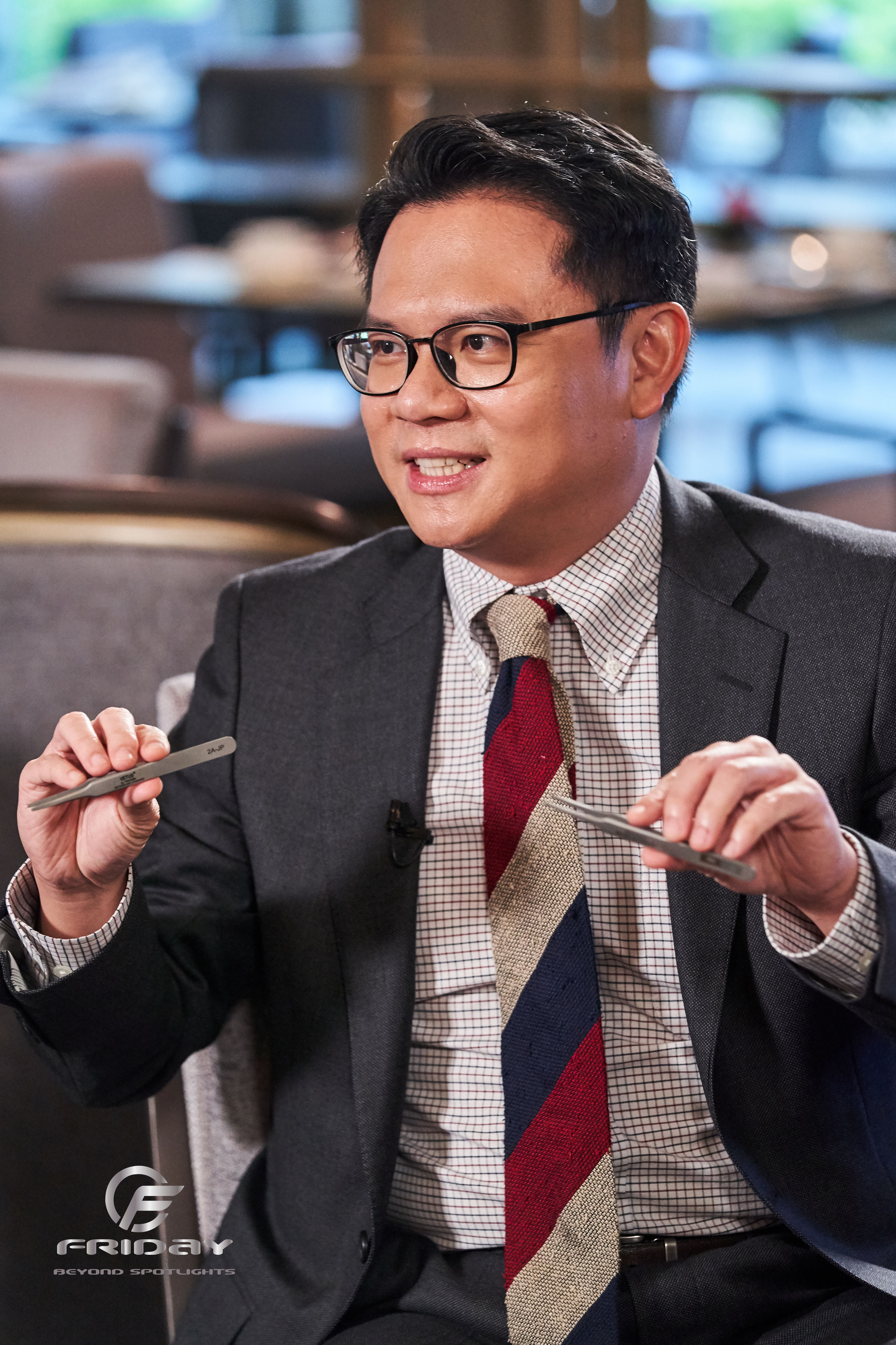MOST SCIENTIFIC STUDIES are dull, with researchers patiently waiting for lengthy processes to produce data. But sometimes they can be just a bit too exciting—and scientists need to move fast, working on a wing and prayer.
Food scientist Anthony Lu told the story of how he was working on a cutting-edge experiment just before flying overseas to make use of a narrow time-slot booked at a special hi-tech facility.
He spent a day working on the nanotechnology process, then handed responsibility to a graduate student to continue the process for the follow day.
A few hours before the flight, Lu returned to the lab to review the samples.
Disaster: The student had assembled them upside down! They were unusable in that condition.
“If I had time I would just redo everything again,” Lu said. But there was no time. “It was only four hours before I had to go to the airport.”
He then decided to grab a special microscope and attempt to realign the nano-level particles himself. This, he knew, would not just be hard, but virtually impossible. “That’s beyond human capabilities,” he said.
But there was no choice. With minutes ticking away, he tried and failed. He tried again and failed again. After five or six failed attempts, he decided to try one more time – and with just one hour to go before heading to the airport, the process worked.
“Somehow I succeeded. I don’t know how. It was like a sixth sense or something,” he said. It turned out to be one of the finest alignments he had ever achieved in nano-level experimental processes.
It taught him a lesson: it is always worth persevering. You don’t fail till you stop trying.

But did it also teach him not to trust subordinates? Actually, no. “At the end of the day you have to trust other people, and you have to cultivate and work with other people and have room for them to make mistakes,” he told Nick Chan in an interview on Friday Beyond Spotlights.
PREDICTING WHAT YOU WANT TO EAT
The food scientist reported that cutting-edge technologies are revamping the way foods are grown and supplied to consumers today.
Director of China Resources Research Institute of Science and Technology, Lu said that technology was changing the food sector at all levels, from farming, and logistics, all the way to supply chain management.
“There are two major aspects of the technology that has been adopted to this industry and to promote its modernization, said Lu, a physicist with a PhD. One was the information available, in the shape of Big Data and Artificial Intelligence.
“I talk to a lot of experts in this industry as well as some great entrepreneurs. And we all agree that one day, it would be a truly demand-driven economy,” he said.
“People’s individual consumption can be predicted and maybe can be forecasted,” he said. “And then we will have a more accurate way of having this growing and supply-side change so that it can be more accommodating and more environmental-friendly.”
Watch the interview on video below, or scroll down to read more of this feature.
Lu said the second thing that technology was changing was the physical side of growing the food and transporting it to where it was needed – and the processes that get the food to the table of every consumer.
“A lot of massive planting as well as growing technologies have been applied, even in China’s market, Mainland China’s market. We see a lot of involvement of drones, for example, doing fertilization tasks. These technologies have been applied to the market, so that will change the business model of how we supply food and deliver food to every consumer,’’ he added.
SUPPORTING HONG KONG START-UPS
Meanwhile, China Resources Research Institute of Science and Technology is exploring business development and supports start-ups in Hong Kong.
“We are looking into new sectors of business development because after Big Data and Artificial Intelligence, we are trying to connect Artificial Intelligence with manufacturing, with the service sector and even having this ongoing mechanical robotic science. So that’s why, for our strategies, we have this research institute,” Lu said.
“It is for commercialization of some technologies in Hong Kong to connect it to the market and to place it into the node of the value chain of tech industry. Especially, it will focus on bringing this tech to China’s market. We have to connect it to the Chinese market and converge with China’s manufacturing as well as the tech base. Only in this way, we can facilitate a successful start-up in Hong Kong.”

Looking to the future, Lu expressed strong confidence on Hong Kong’s development.
“I believe Hong Kong should remember its role as the intermediary and window between the world and Mainland China, especially in the times of uncertainty and with potential geopolitical risks and the climate and natural disasters,” he said.
“Hong Kong still should be deeply connected to the world and seizing these opportunities to grow and having a thriving culture in Hong Kong and stay optimistic, believe in ourselves that we still can create, we can compete and make things happen.”
Image at the top from Friday Beyond Spotlights. The program features knowledgeable figures from Hong Kong engaging in conversation with a host. Click this line to go to our YouTube channel and see more episodes.
